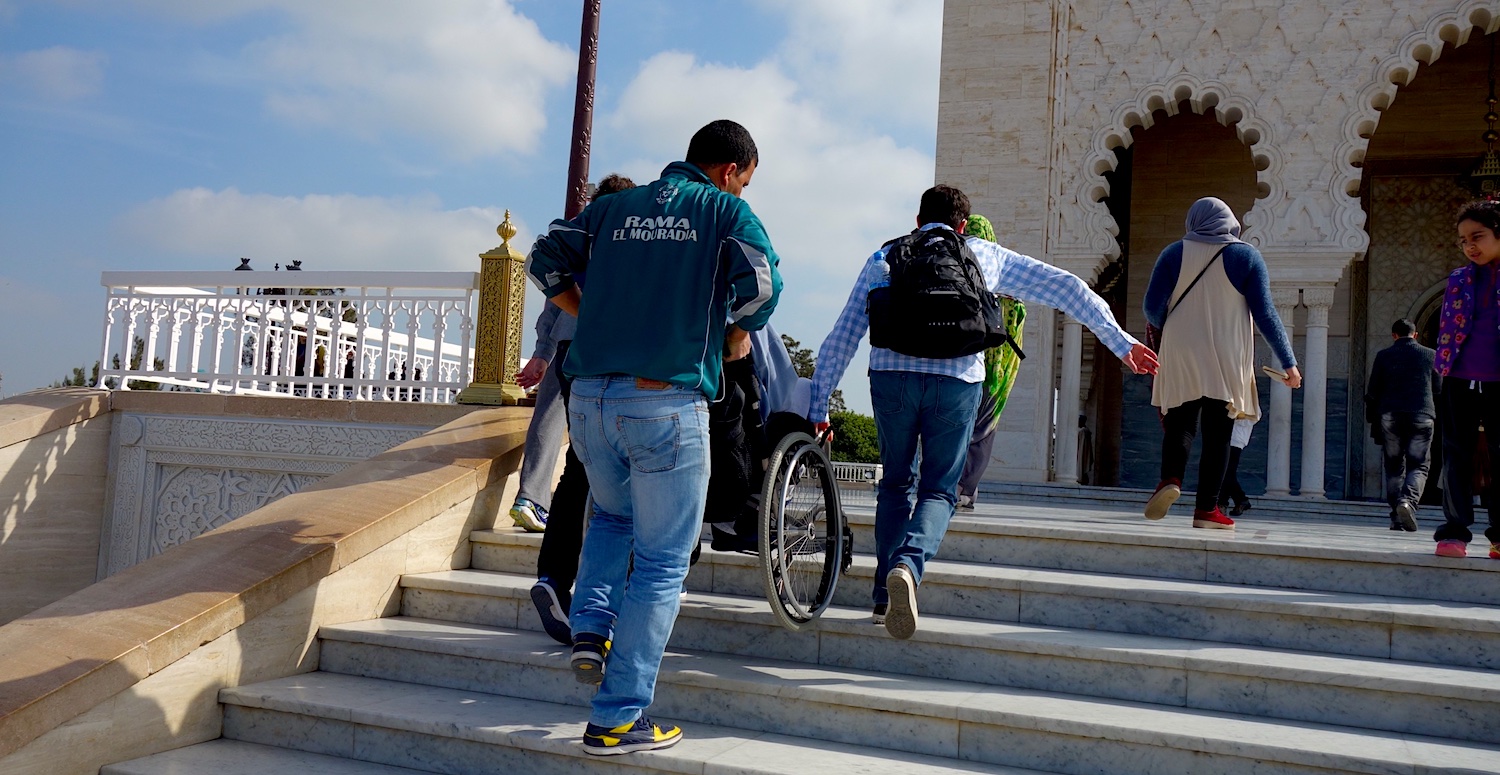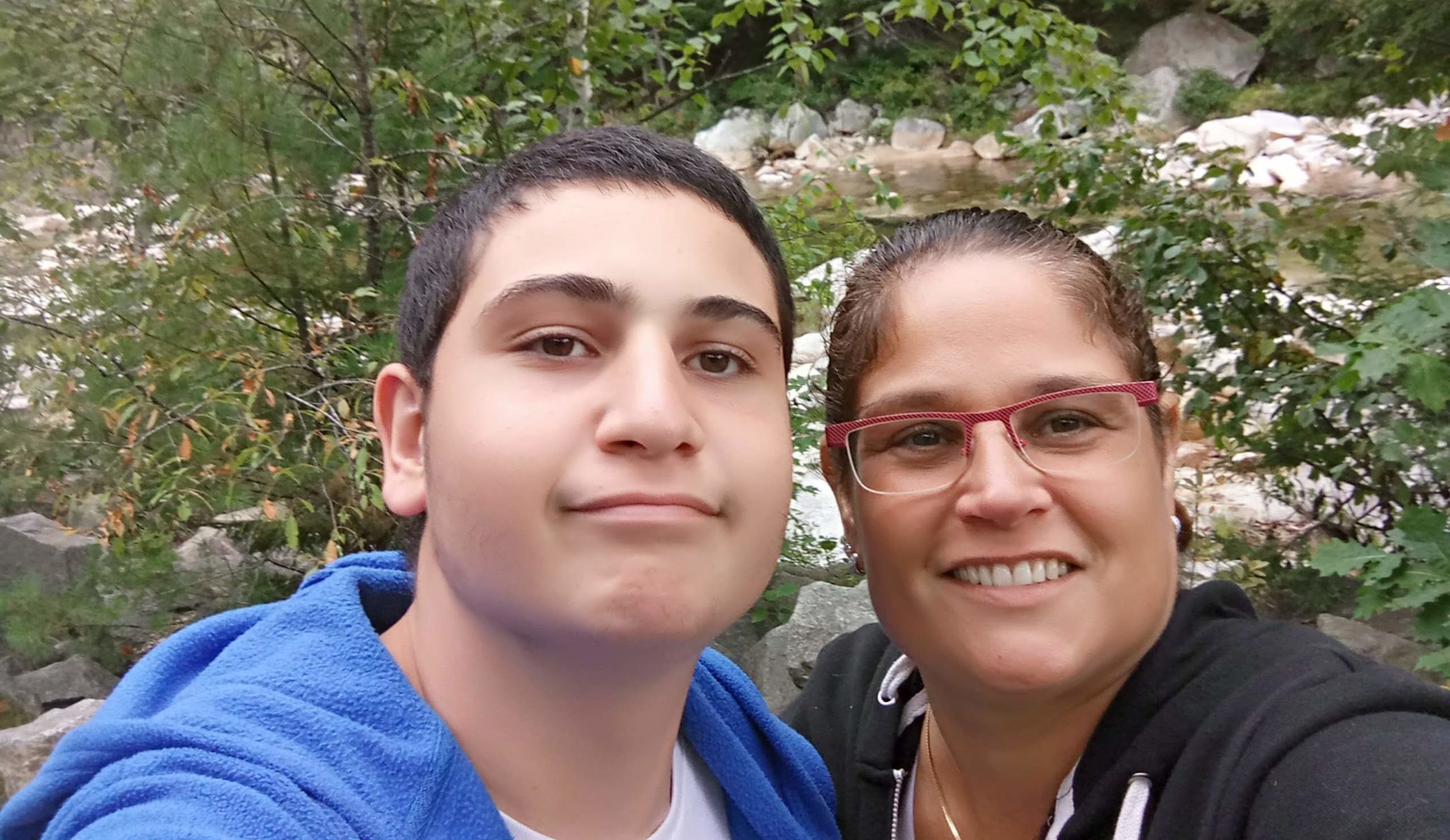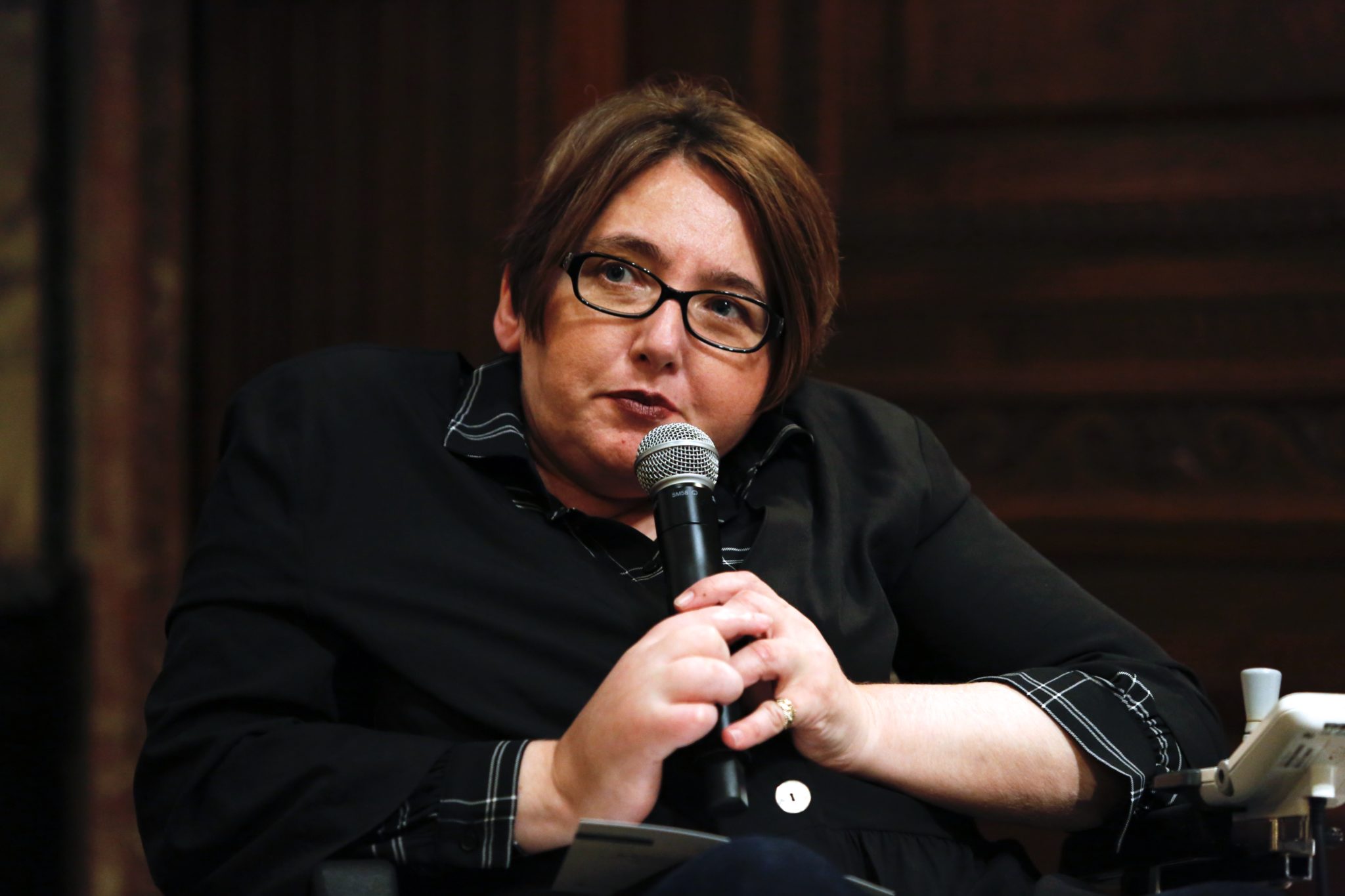Life
Accessibility Still Challenging for MENA Countries as World Marks Disability Day
JOSHUA ROBBIN MARKS / The Media Line

Morocco, Israel two examples of how further action is needed to ensure integration and inclusion for people with special needs
From tiled steps in Fez to blue-painted stairs in Chefchaouen, visitors to Morocco can expect to get some exercise while sightseeing. But what about wheelchair-bound tourists?
 A tourist in a wheelchair is carried up the stairs in Rabat. (Morocco Accessible Travel Consultants)
A tourist in a wheelchair is carried up the stairs in Rabat. (Morocco Accessible Travel Consultants)
Fez was founded in 789, approximately 1,203 years before the International Day of Persons with Disabilities was proclaimed by United Nations General Assembly resolution 47/3. The annual event recognizing the dignity and rights of individuals with disabilities and promoting their integration and inclusion in society is held on December 3.
Jeremy Schmidt, a physical therapist by training, lives in Fez. About five years ago Schmidt and his friend started a consultancy for people with disabilities traveling to Morocco.
“We work with wheelchair users. The whole gamut. People with low-level spinal cord injuries to quadriplegics to visual impairments. Full assistance,” Schmidt told The Media Line.
In Fez, Schmidt explained, the medina (historic quarter) can be challenging in terms of accessibility.
“We have found most travelers need information. They need to know where they can go with accessibility. Not every traveler can avoid steps but often they need to know before the encounter to prepare mentally and physically,” Schmidt said.
According to the World Health Organization, about 15% of the world’s population, adding up to more than a billion people, live with some form of disability. Data compiled by the website Statista as of 2017 shows that Morocco has the highest disability prevalence rate in the Middle East and North Africa region at 5.07%.
Across the Mediterranean in Israel, accessibility can be challenging too, according to Revital Len-Cohen, a mother of a 17-year-old autistic son who provides volunteer legal advice and case management to families of children with disabilities for the Coalition of Families of Children With Special Needs.
 Revital Len-Cohen pictured with her son. (Courtesy)
Revital Len-Cohen pictured with her son. (Courtesy)
On Sunday, Israeli Prime Minister Binyamin Netanyahu, in remarks at the start of the weekly cabinet meeting, acknowledged the International Day of Persons with Disabilities.
“We have been working throughout the year to increase accessibility and assist in integrating them into Israeli society,” Netanyahu said. “I passed a multi-year plan with considerable funds to ensure accessibility at public buildings, government buildings and the like.”
Len-Cohen pointed out that last month the Ministry of Health asked for the third time to postpone moving forward with making government buildings accessible.
“The decision means that people with disabilities still can’t go to any governmental building even for medical care,” Len-Cohen said. “So, you can understand how backward we are.”
The Convention on the Rights of Persons with Disabilities (CRPD) is an international human rights treaty adopted by the UN General Assembly in 2006 and which came into force in 2008. The treaty so far has 164 signatories and 182 parties, including Israel which signed the treaty in 2007 and ratified it in 2012.
According to Len-Cohen, Israel is not fully complying with the obligations of the treaty.
“As long as they don’t look at the whole picture and do exactly what the CRPD says, it will not happen. It must be looked at as a whole. You can’t go halfway. Either you do CRPD or you don’t,” Len-Cohen said.
" The main challenge in the region – similar to other regions – is how to put measures in place to translate commitments into practice "
Disability rights activist Dr. Ola Abu Al Ghaib, manager of the Technical Secretariat of the UN Partnership of Persons with Disabilities at UND, told The Media Line that it is difficult to say that one country in the MENA region really stands out in terms of being disability-friendly.
 Dr. Ola Abu Alghaib, director of the UN Partnership to Promote the Rights of Persons with Disabilities, moderates a panel discussion at “The Missing Billion in UHC: Children and Persons with Developmental Delays and Disabilities” at the New York Public Library, Sept. 24, 2019. (Courtesy)
Dr. Ola Abu Alghaib, director of the UN Partnership to Promote the Rights of Persons with Disabilities, moderates a panel discussion at “The Missing Billion in UHC: Children and Persons with Developmental Delays and Disabilities” at the New York Public Library, Sept. 24, 2019. (Courtesy)
“There are some promising practices, but I can’t point a finger to one country as a model example in the region that others should follow,” Al Ghaib said.
Al Ghaib did say that higher-income countries such as the United Arab Emirates and other Gulf states provide more accessibility but that it is still not available and affordable to everyone.
When it comes to conflict zones such as Syria, Al Ghaib stated, it becomes much harder for people with disabilities to get access to basic standards.
“The main challenge in the region – similar to other regions – is how to put measures in place to translate commitments into practice,” Al Ghaib said.
This year, the International Day of Persons with Disabilities falls on the same week as the Conference of States Parties to the Convention on the Rights of Persons with Disabilities. The weeklong program started on November 25 and ends on December 3. The theme for 2020 is “Building back better: toward an inclusive, accessible and sustainable post-COVID-19 world by, for and with persons with disabilities.”
The United Nations said about this year’s pandemic theme that people with disabilities are among the hardest hit by the outbreak in terms of fatalities.
“Disability inclusion will result in a COVID-19 response and recovery that better serves everyone, more fully suppressing the virus, as well as building back better,” the UN said. “It will provide for more agile systems capable of responding to complex situations, reaching the furthest behind first.”
“for more trusted Mideast news see www.themedialine.org”

Stories for you more +